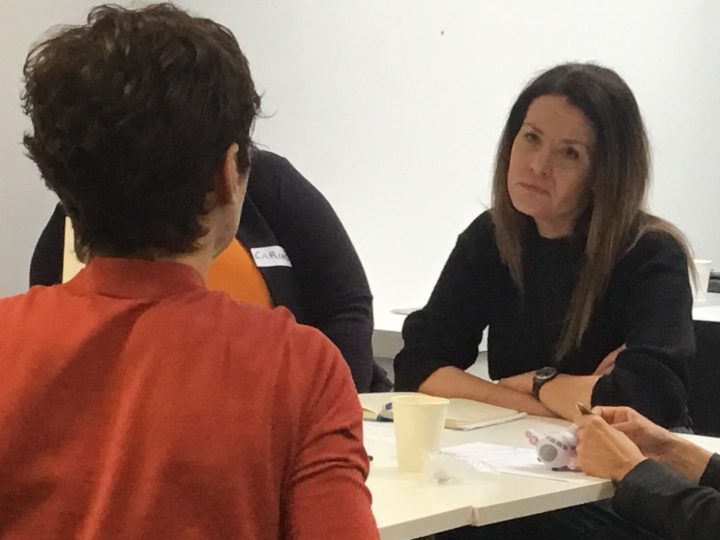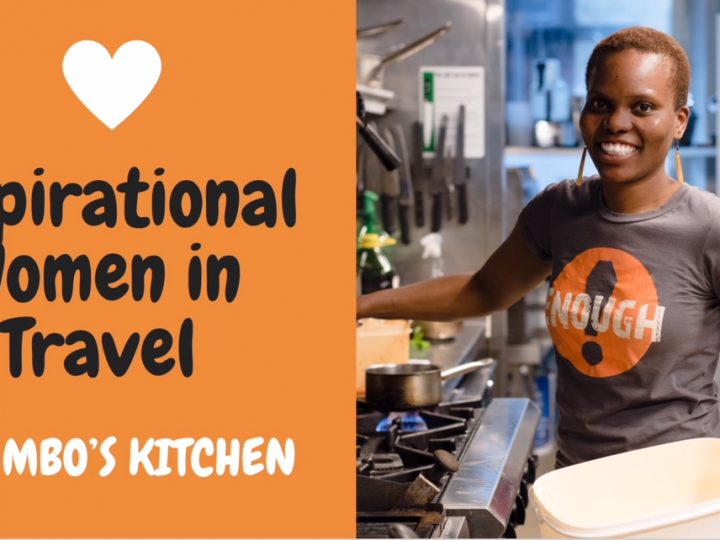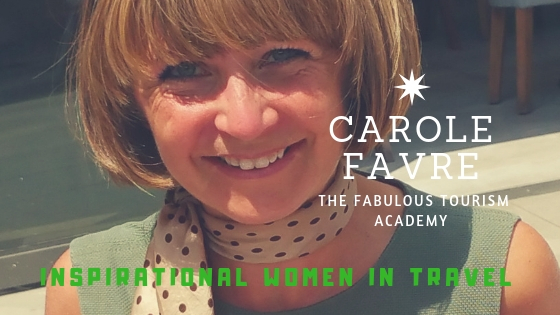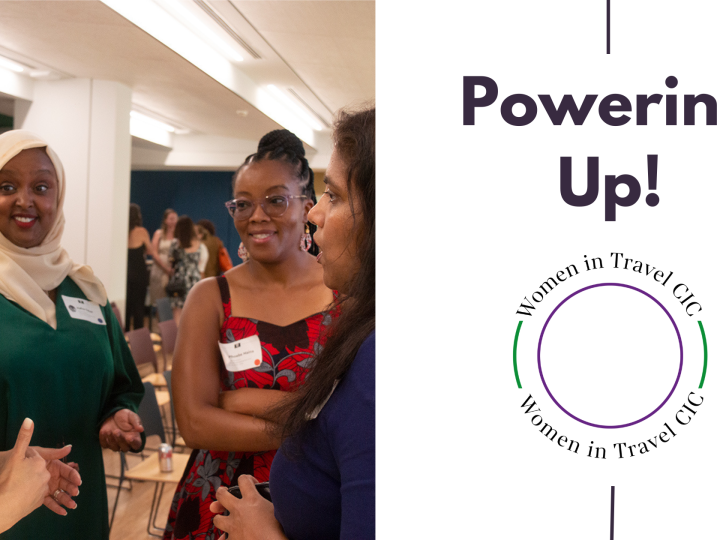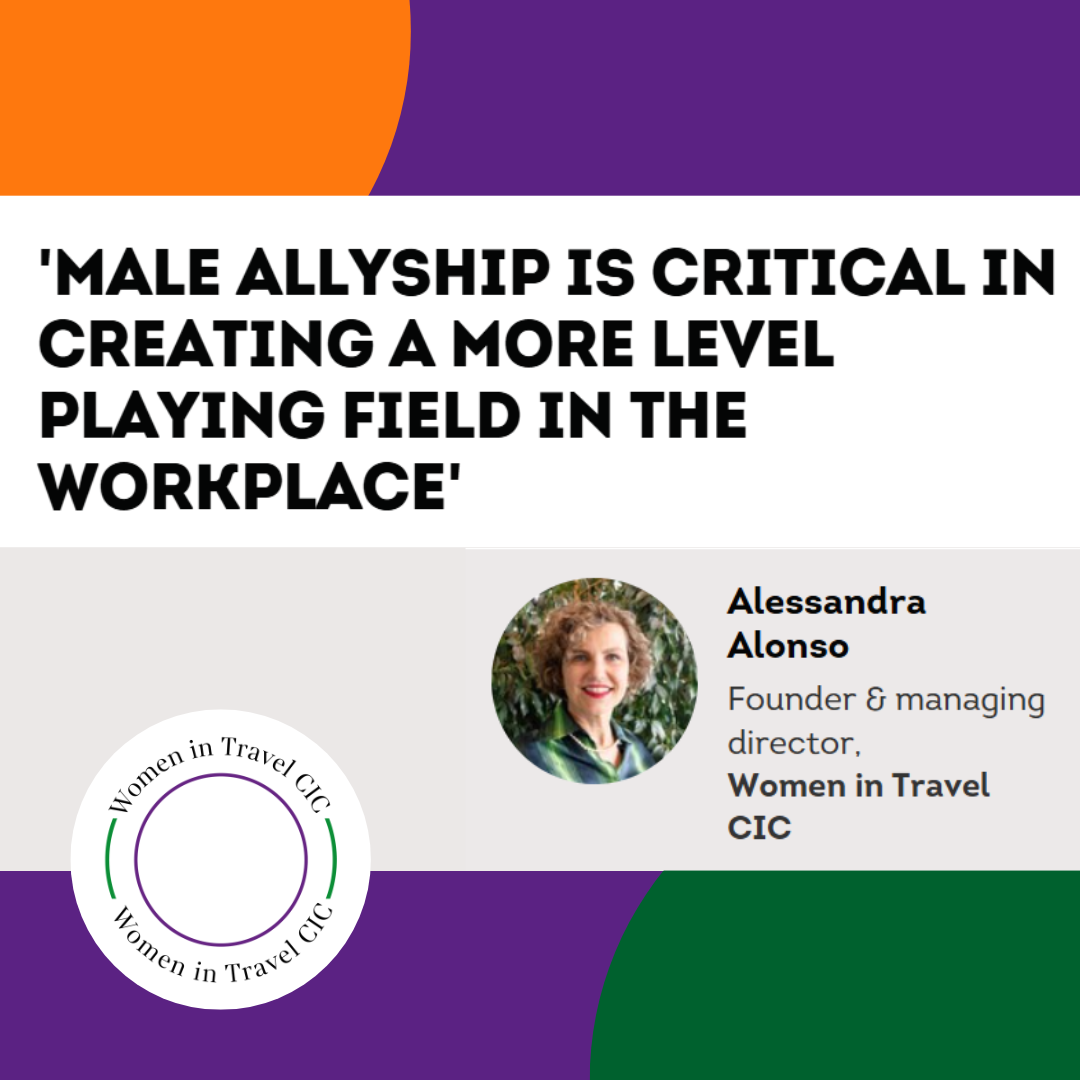
Writing for TTG, Alessandra Alonso emphasizes the vital role of male allyship in the workplace, challenging the notion that it diminishes women’s autonomy. She argues that with men in key positions, their support in Diversity, Equity, and Inclusion (DEI) is essential, highlighting how the male allyship programme enables reverse mentoring, expanding men’s perspectives on gender challenges and fostering a more inclusive work environment.
A shorter version of this article was first published in TTG: https://www.ttgmedia.com/sustainability/male-allyship-is-critical-in-creating-a-more-level-playing-field-in-the-workplace-48880
A recent article in Forbes by a prominent gender inclusion advocate has recently discredited the term of Male Allies as damaging to women. As a long standing gender inclusion champion myself and someone who spearheaded and implemented a pioneer Male Allyship Network in the Travel and Tourism industry I find myself disagreeing on a number of counts.
First though, allyship is the concept of being an ally. This means supporting someone who might be in a minority; checking whether every diverse voice is included in a room and which voice might need to be elevated. It is also about understanding our own privilege and situational power (the one that comes with a certain job and status) and using it to level up opportunities. Everyone can be someone else’s ally on that basis!
This is so important particularly in the workplace, where certain groups remain marginalised and underrepresented. Enter the MALE ALLY.
The workplace is still very male dominated, in most industries and particularly at the top. In 2024 women represented only 10% of Fortune 500 and 11% of FTSE100 CEOs. Overall, the percentage of women in management positions sits around the 30% mark, but this can be a lot lower for women of colour, women from LGBTQ+ groups and again women in the STEM sector. On the subject of entrepreneurship, women running businesses are still few and far between in most countries and we know that there are systemic barriers around access to funding and technology .
That is where situational power comes into its own and where male allies matter the most.
In our sector, travel and tourism, men – especially white and middle class – hold the majority of senior positions. In that context, they have influence, visibility, engagement and can role model allyship in a very transparent and impactful way. They can also do the opposite and create shockingly toxic culture!
In our experience, senior male leaders are both conscious of the positive impact they can have and all in all, willing to act as allies. They have the knowledge and experience required to understand that a diverse and inclusive workplace is better for everyone. Their knowledge can be also backed up with plenty of management and scientific evidence from reputable institutions – from Harvard to the London Business School – that show that diverse teams perform better and that companies with women at the top outperform competitors. Hence, acting as male allies to all women makes perfect (business) sense!
This is not about ‘perpetuating the idea that women need saving by men […] When we speak of “male allies,” we unintentionally suggest that women require men to lift them up, as if women cannot achieve success on their own merits.’ It is rather about the idea that privileged and powerful senior male leaders can positively use their status to open up opportunities, because it is also true that ‘we rise as we lift others’! This is equally true for the number of women in senior positions and they are certainly encouraged to play their role as ‘women allies’ . The point here is that the sheer volume of men in senior positions means that to level up the workplace they have a critical role to play as allies in the workplace!
In our experience, male allyship is a powerful force for change.
When we set out to create the Male Allyship Programme in 2021, we wanted to specifically address two questions:
– Why is it that so many men in leadership positions shy away from the DEI conversation?
– What can we do to change the widespread perception that their input is NOT welcome?
When we invited a group of senior leaders from across the international travel tourism and hospitality industry to take part in the discussion the response was overwhelmingly positive and by the end of it our programme was born.
As we were saying, senior male leaders often want to create more inclusive workplaces and see the value in acting as allies, but shy away from engaging for lack of practical knowledge on how to go about it or fear of negative repercussions.
That is where providing a safe platform to commit and practice allyship can really help. By creating a framework where allyship can be practiced without fear of judgement, male allies learn, listen to and understand much more about the way in which diverse individuals experience the workplace and in our case, specifically the travel and tourism sector.
You see therefore that Reverse Mentoring is taking place, initially as a by product of the allyship framework. As the male ally engages more and more with it, however, it is he who actively seeks to learn and understand more about the woman/mentee, leading to feedback like this:
[The programme] Gave me chance to reflect on ways to listen and support, rather than just problem solve. Made me recognise how tough it is for solo entrepreneurs and single mothers. Reminded me of how passion, creativity and innovative thinking drive change and opportunity.
And this
[Through the programme] I have gained a totally different perspective on the sector and on business. I can now go back to the female colleagues in my team and ask much better questions’
From the view point of women who enrol in the male allyship programme, what we hear from women is not ’ feelings of inadequacy, leading women to question their own abilities.’ On the contrary, as explained by one female mentee ‘Through the MAN mentoring programme, I’ve witnessed firsthand how mutual support can foster personal and professional progress for the underrepresented. Working alongside a male ally who is committed to equality helped me to be confident and not be afraid to speak up in any environment.’
So to us, the concept of Male Allyship is not only positive, but critical to support a more levelled playing field in the workplace. Ultimately, we all have a responsibility to act as allies, but for those in positions of power and trust, it is even more important to recognise that their impact can make all the difference.
Women in Travel CIC

